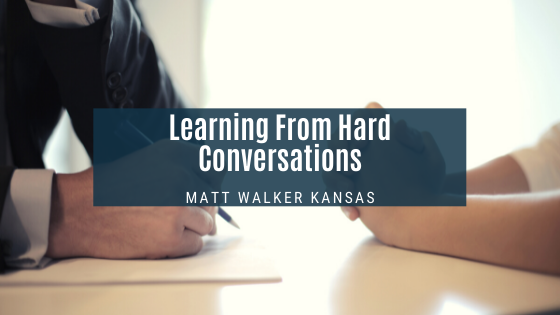Most people avoid hard conversations with other people. Many don’t want to feel like the bad guy about saying something to someone or delivering bad news. Others just don’t want the stress and discomfort that comes with such interpersonal circumstances.
Avoiding such conversations can cost organizations dearly. Research has looked into this, and the average avoided conversation winds up costing establishments over $7,000. Interestingly, difficult conversations can open the doors to self-development.
It’s better to address things early than let them fester into something bad. Recognizing when to suspend your ego and step in is a sign of tremendous maturity. It means seriously improving your personal and professional skills at the same time. While it might feel awkward at first, it can also mean gaining a lot of respect from your peers.
While some hard conversations need to happen sooner rather than later, it’s still very useful to put in some practice first. Even a token amount of preparation can do wonders for the eventual chat. Prepared scripts can feel inauthentic and even make the situation worse if the other party is offended. What’s better is preparing a list of good questions to ask them so they feel heard and understood.
One danger of hard conversations is how they turn into games of shame and blame. You need to look past what someone might say on the surface and try to understand where they’re really coming from. See past the surface behavior, and try to grasp their actual intentions.
Find teachable moments. Just because a colleague or employee isn’t acting in alignment with organizational values doesn’t mean they can’t be shown the light. It might take time for them to really get it, but they might if given the chance.
Compassion and co-creative solutions go a long way in resolving pain points or issues of conflict between people. As much as you might not want to have a hard conversation with someone, they probably aren’t looking forward to it either. Be proactive and find a way out of these tensions together. You can both come out stronger people but also hopefully have a stronger interpersonal understanding and working relationship on top of that.
Hard conversations might seem like something to run from, but they’re also something that you can grow from.


